
William Dale Fries Jr. was an American commercial artist who won several Clio Awards for his advertising campaigns. He was also a musician and is best known for his character C. W. McCall, a truck-driving country singer that he originally created for a series of bread commercials. Fries performed as McCall in a series of outlaw albums and songs in the 1970s, in collaboration with co-worker Chip Davis who also founded Mannheim Steamroller.

"Rubber Duckie" is a song sung by the Muppet character Ernie on Sesame Street. The song is named after Ernie's toy, a rubber duck affectionately named Rubber Duckie.

"In the Midnight Hour" is a song originally performed by Wilson Pickett in 1965 and released on his 1965 album of the same name, also appearing on the 1966 album The Exciting Wilson Pickett. The song was composed by Pickett and Steve Cropper at the historic Lorraine Motel in Memphis, later the site of the assassination of Martin Luther King Jr. Pickett's first hit on Atlantic Records, it reached number one on the R&B charts and peaked at number 21 on the pop charts.
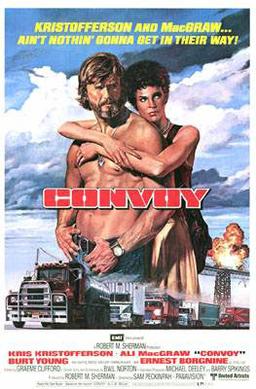
Convoy is a 1978 American road action comedy film directed by Sam Peckinpah and starring Kris Kristofferson, Ali MacGraw, Ernest Borgnine, Burt Young, Madge Sinclair and Franklyn Ajaye. The film is based on the 1975 country and western novelty song "Convoy" by C. W. McCall. The film was made when the CB radio/trucking craze was at its peak in the United States, and followed the similarly themed films White Line Fever (1975) and Smokey and the Bandit (1977). The film received mixed reviews from critics; however, it was the most commercially successful film of Peckinpah's career.
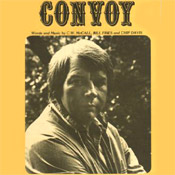
"Convoy" is a 1975 novelty song performed by C. W. McCall that became a number-one song on both the country and pop charts in the US and is listed 98th among Rolling Stone magazine's 100 Greatest Country Songs of All Time. Written by McCall and Chip Davis, the song spent six weeks at number one on the country charts and one week at number one on the pop charts. The song went to number one in Canada as well, hitting the top of the RPM Top Singles Chart on January 24, 1976. "Convoy" also peaked at number two in the UK. The song capitalized on the fad for citizens band (CB) radio. The song was the inspiration for the 1978 Sam Peckinpah film Convoy, for which McCall rerecorded the song to fit the film's storyline.
Country rap is a fusion genre of popular music, blending country music with hip hop–style singing or rapping.
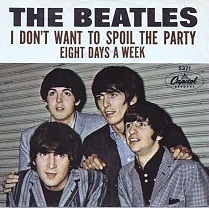
"I Don't Want to Spoil the Party" is a song by the English rock band the Beatles, written by John Lennon and credited to Lennon–McCartney. It was released on the album Beatles for Sale in the United Kingdom in December 1964. "I Don't Want to Spoil the Party" was also released on the Beatles for Sale EP.
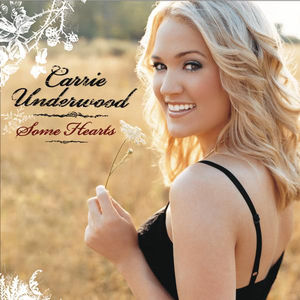
Some Hearts is the debut studio album by American singer and songwriter Carrie Underwood, released in the United States on November 15, 2005, by Arista Nashville. The album contains the number one country singles "Jesus, Take the Wheel", "Don't Forget to Remember Me", "Wasted", and "Before He Cheats". The North American version contains the Billboard Hot 100 number one single, "Inside Your Heaven", as a bonus track.

"Jesus, Take the Wheel" is a song written by Brett James, Hillary Lindsey and Gordie Sampson, and recorded by American country music artist Carrie Underwood. It was released on October 18, 2005, as the first single from Underwood's debut album Some Hearts (2005). The ballad tells of a woman seeking help from Jesus in an emergency and surrendering control to a higher power.

Black Bear Road is an album by country musician C. W. McCall, released on MGM Records in 1975. It is largely considered the album which gave him the most significant boost of his career, almost entirely due to the hit novelty song, "Convoy", that hit the number one spot on both Billboard's Country charts and its Pop charts. The song itself was largely responsible for starting a nationwide citizens' band radio craze. The song "Black Bear Road" in turn popularized the now-infamous road itself, along with its "You don't HAVE to be crazy to drive this road - but it helps" sign.
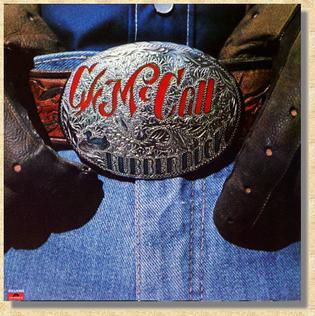
Rubber Duck is an album by country musician C. W. McCall, released on Polydor Records in 1976. It is his fourth album, released the same year as Wilderness, but concentrating on the themes the McCall character was popular for – trucking, as opposed to the various depictions of nature that could be found in Wilderness. Among others, the album contains the song "'Round the World with the Rubber Duck", a sequel to McCall's earlier wildly popular hit "Convoy", with many humorous and absurd elements added. "Audubon" is a quasi-autobiographical song, while "Ratchetjaw" is a take on trucker slang, with a multitude of CB-related terminology included in the lyrics.

C. W. McCall's Greatest Hits, as the title suggests, is a greatest hits compilation of country musician C. W. McCall's work, released in 1983 on Polydor Records, rereleased on September 21, 1993 and containing songs from the first five out of his six albums of original music, including the ever-popular "Convoy" and its sequel, "'Round the World with the Rubber Duck".
"The White Knight" is a novelty country music song made famous by Jay Huguely, who - recording as Cledus Maggard & The Citizen's Band - enjoyed a brief run of national popularity with the song when it became popular in 1976.
"Roses for Mama" is a song recorded by country music artist C. W. McCall and covered by Red Sovine, and was a top 5 hit for McCall in 1977. The song was also covered, in German, by Austrian singer Jonny Hill in 1979.
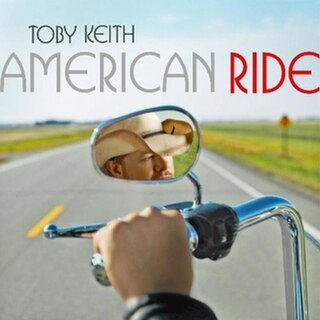
"American Ride" is a song written by Joe West and Dave Pahanish and recorded by American country music artist Toby Keith. It was released in July 2009 as the first single and title track from Keith's 2009 album of the same name. The song became Keith's 19th number one hit on the US Billboard Hot Country Songs chart for the week of October 10, 2009.
"Till You Love Me" is a song written by Bob DiPiero and Gary Burr, and recorded by American country music artist Reba McEntire. It was released in October 1994 as the third single from her album Read My Mind. The song reached #2 on the Billboard Hot Country Singles & Tracks chart in February 1995, behind Pam Tillis' "Mi Vida Loca ". It was also McEntire's first entry on the Billboard Hot 100, reaching #78.
Country Airplay is a chart published weekly by Billboard magazine in the United States since October 20, 2012, although the magazine also retrospectively recognizes the Hot Country Songs charts from January 20, 1990, through October 13, 2012, as part of the history of the Country Airplay listing. The chart lists the 60 most-listened-to records played on 150 mainstream country radio stations across the country as monitored by Nielsen BDS, weighted to each station's Nielsen ratings.

"Something in the Water" is a song co-written and recorded by American country music artist Carrie Underwood, from her compilation album Greatest Hits: Decade #1. The song was released on September 29, 2014, as the album's lead single through Arista Nashville. It was written by Underwood, Chris DeStefano, Brett James, and produced by Mark Bright.











